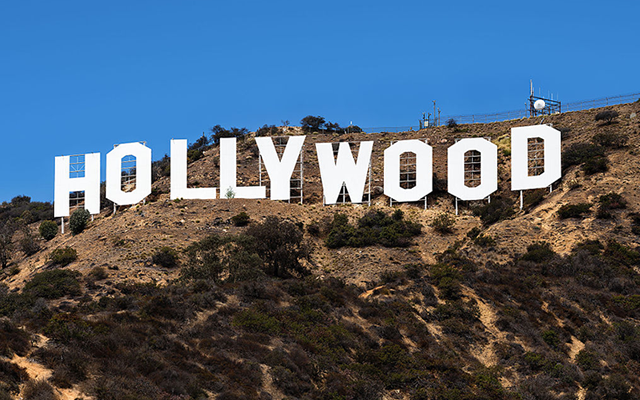Striking writers whose industrial action has paralyzed Hollywood said Sunday they had reached an “exceptional” deal with studios that could see them go back to work.
The apparent breakthrough will raise hopes that striking actors can also reach terms with studios to end a months-long impasse that has seen film and TV production largely halted, costing the California economy billions of dollars.
“We have reached a tentative agreement on a new 2023 (minimum basic agreement), which is to say an agreement in principle on all deal points, subject to drafting final contract language,” said a letter the Writers Guild of America sent to members.
“We can say, with great pride, that this deal is exceptional — with meaningful gains and protections for writers in every sector of the membership.”
The letter, which AFP has seen, gave no details. It said language was being ironed out and that the final say on whether to accept what was on offer rested with the membership.
“To be clear, no one is to return to work until specifically authorized to by the Guild. We are still on strike until then. But we are, as of today, suspending WGA picketing,” it said.
A terse joint statement from the WGA and the AMPTPT, the umbrella group representing studios and streamers confirmed an agreement.
– Actors strike –
Thousands of film and television scribes downed their pens in early May over demands including better pay for writers, greater rewards for creating hit shows, and protection from artificial intelligence.
They have manned picket lines for months outside offices including Netflix and Disney, and were joined by striking actors in mid-July, leaving normally busy Hollywood lots all but vacant, in an ebullient and united show of force.
Actors’ union SAG-AFTRA congratulated the WGA, praising the “incredible strength, resiliency and solidarity on the picket lines.”
“While we look forward to reviewing the WGA and AMPTP’s tentative agreement, we remain committed to achieving the necessary terms for our members,” it said.
Among their demands, writers say their salaries have not kept up with inflation, and that the rise of streaming has diminished the “residuals” they earn when a show they work on becomes a smash hit.
Studios had offered greater transparency in streaming audience numbers, while stopping short of offering to revise the way residual payments are calculated.
Writers have also demanded curbs on the use of AI, which they fear could be used to partially replace them in generating future films or show scripts, and therefore further undercut their pay.
– $5 billion –
The Financial Times reported Milken Institute research at the start of September that put the cost of the current Hollywood standstill at $5 billion.
At 146 days, the WGA strike is significantly longer than the writers’ 2007-08 walkout — which lasted 100 days and cost the California economy $2.1 billion.
Even if the writers deal is finalized, the actors’ strike would continue.
There have been no known contract talks between the studios and the actors’ 160,000-strong SAG-AFTRA guild since that strike began.
But the two unions share many similar demands, and insiders say that a WGA deal could help to pave the way for a resolution to the actors’ strike.
“We remain on strike in our TV/Theatrical contract and continue to urge the studio and streamer CEOs and the AMPTP to return to the table and make the fair deal that our members deserve and demand,” SAG-AFTRA said.










